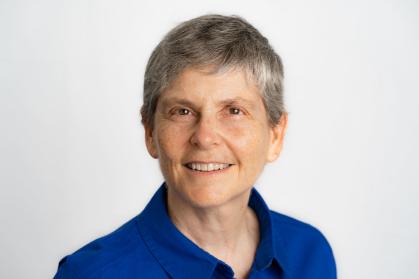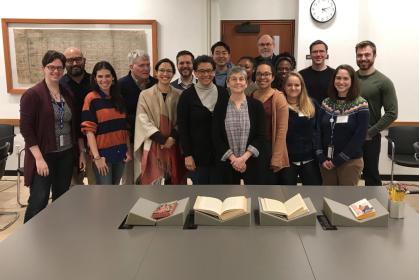Rutgers Researcher Developing Digital Bibliography of Black Authors and Print Work

A Rutgers researcher is teaming up with a professor from Yale to develop a digital database dedicated to the study of Black-authored and Black-published books, magazines and newspapers.
The Black Bibliography Project, funded through a $1.7 million grant from the Mellon Foundation, seeks to remedy what scholars say is a dearth of accurate, organized data about Black print.
The project’s mission is to provide a central clearinghouse of information that will be easily accessible to scholars and students of literature, history, Black diaspora studies and other fields.
“I am tremendously excited by what this grant will bring to Rutgers and the many kinds of collaboration it will make possible,” said Meredith McGill, chair of the Department of English in the Rutgers School of Arts and Sciences.
McGill is co-director of the initiative with Jacqueline Goldsby, a professor of English, African American studies and American studies at Yale.
The two professors said their work builds upon a history of efforts by scholars, librarians and private collectors to identify, curate and provide access to primary source collections of writings by Black Americans.
But the project aims to go beyond collecting and curating: McGill and Goldsby want to revive the practice of descriptive bibliography – the study of books as physical objects – and apply it to Black literary studies.
Descriptive bibliography explores the production and circulation of books with the goal of uncovering insights into the role of print in human history.

For example, McGill, a scholar of 19th-century literature, noted how the early writings of Black abolitionist lecturers Frances E.W. Harper and Sojourner Truth were pamphlets produced by white newspapermen sympathetic to the abolitionist movement.
“We think of their writings as appearing in books, but they were actually published in portable formats that could be sold or given away on their lecture tours,” McGill said. “And that’s why we’re interested in descriptive bibliography, to learn those types of stories that enrich our understanding.”
Using web technologies such as Linked Data and Wikibase, the bibliography project will cast a light on the world of Black print by allowing users to find connections and relationships that had previously gone undetected. The database will link Black authors with their publishers, show the locations where their books were produced and sold and identify crucial individuals who owned or interacted with the works through the years.
Scholars will be able to pursue challenging questions, such as which slave narratives had copyrights taken out in the names of their authors and which in the names of the publisher or whether mid-20th-century Black novels were more likely to be published in New York, Chicago or Atlanta.
Goldsby and McGill have been overseeing a pilot program since 2019, leading a team that includes librarians and curators from Yale’s Beinecke Rare Book and Manuscript Library, graduate students from Yale and Rutgers and scholar-consultants from the University of Texas at Austin, the University of Delaware and Princeton University. The pilot also has been supported through the Mellon Foundation.
The grant will support the project through 2025 and allow Goldsby and McGill to assemble a larger team and begin the process of connecting with library and archival repositories nationwide to feed the database.
For McGill, a Rutgers professor since 1996, the project provides an array of benefits to the university community. Graduate students, for example, can learn descriptive bibliography at Yale’s Beinecke Library, one of the world’s premier collections of African American literature.
“Both Rutgers and Yale are known for their strengths in African American literary studies,” McGill said. “This grant from the Mellon Foundation will draw students and faculty from both universities together with rare book expert librarians and information design specialists to build an unprecedented knowledge base for African American studies.”
For more on the Black Bibliography Project, visit the website.




